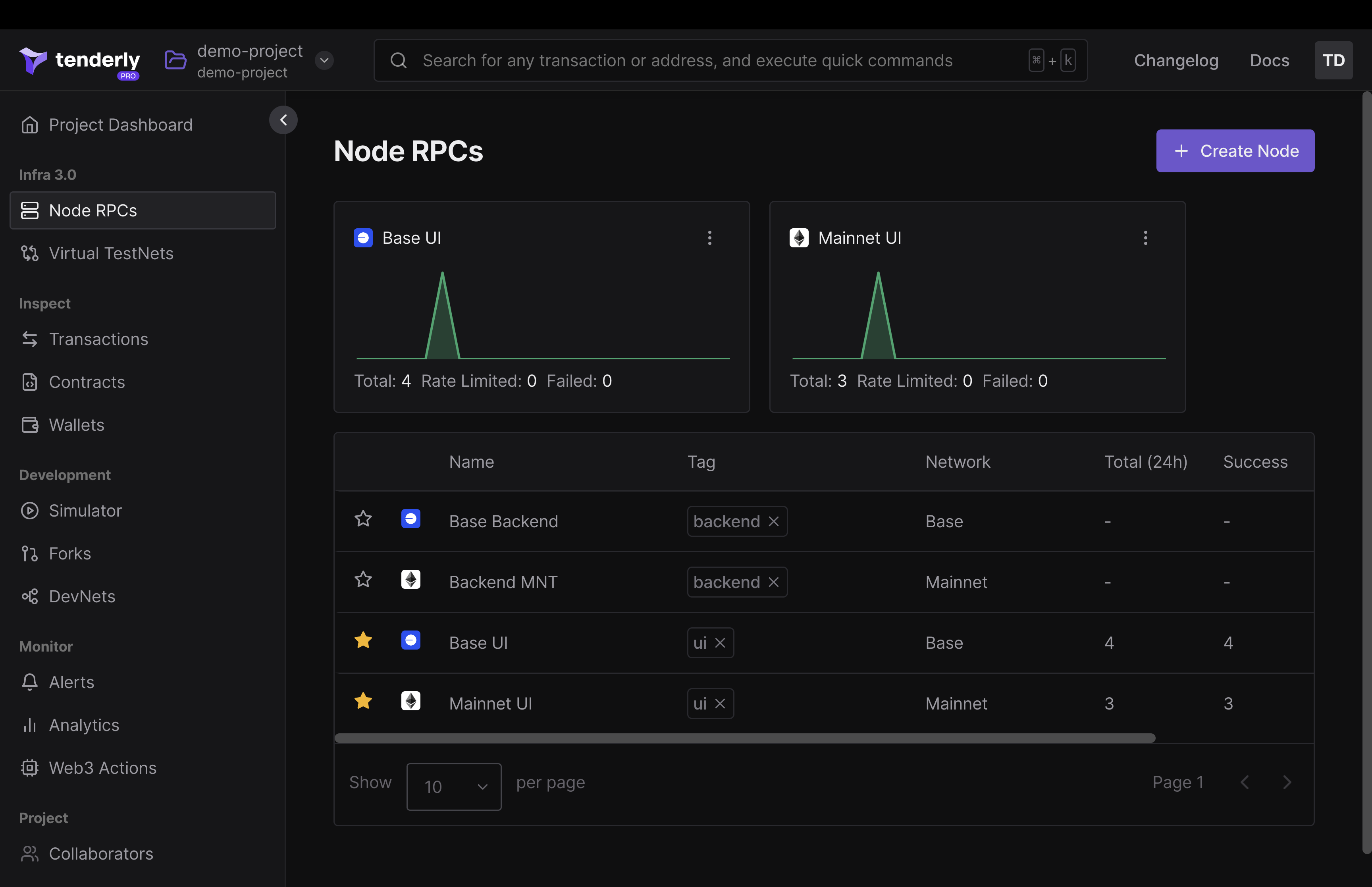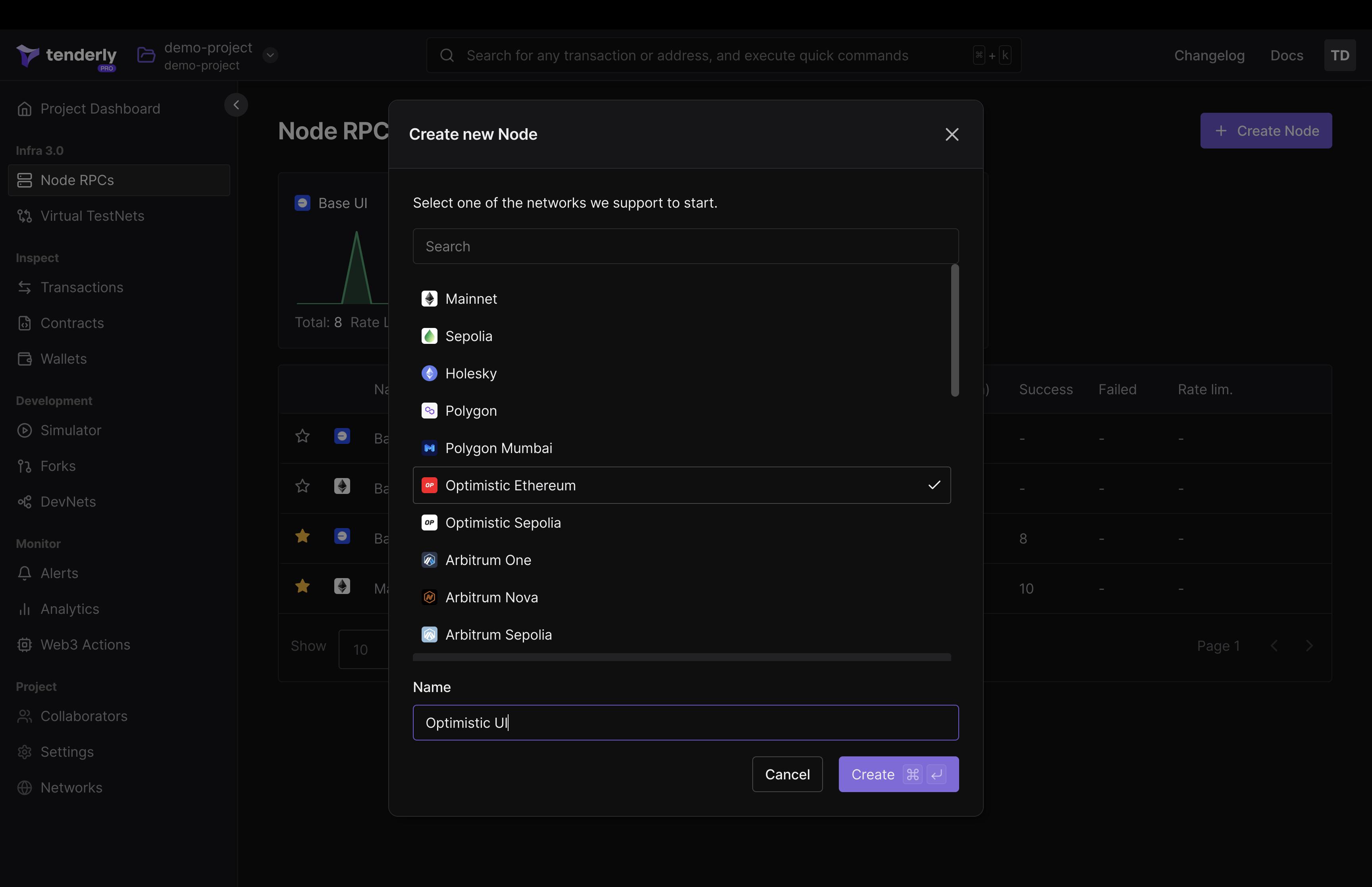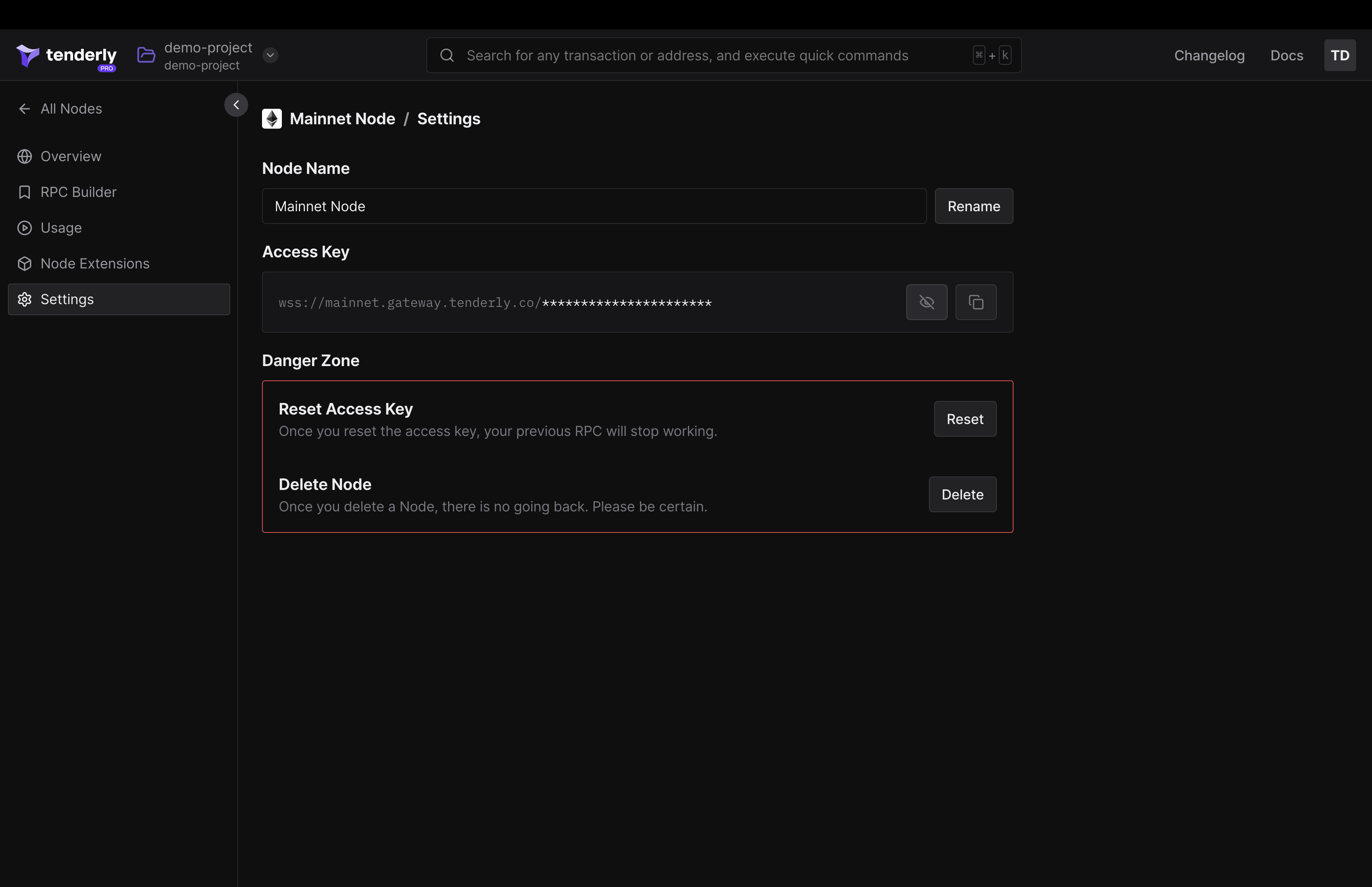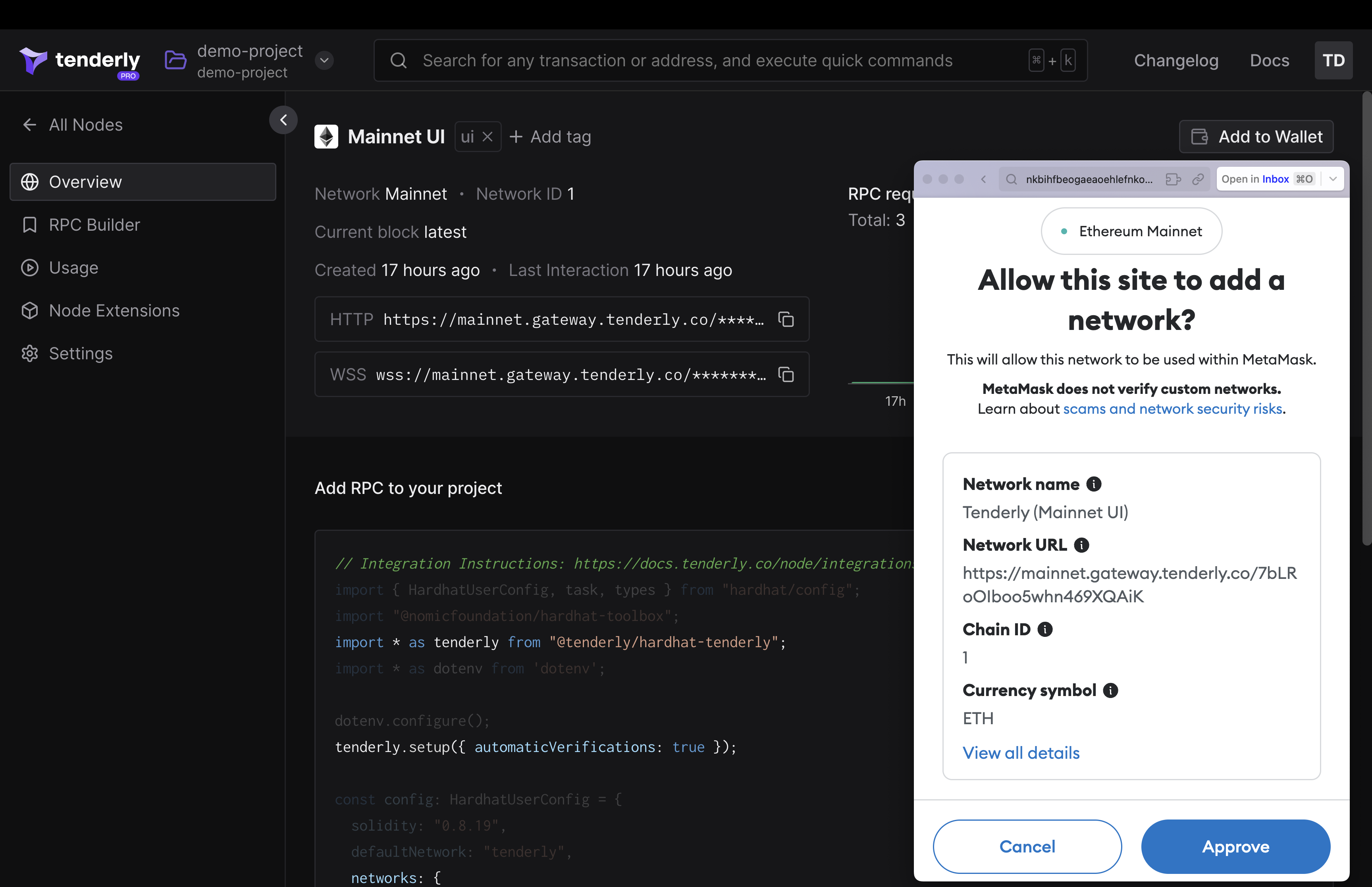Node RPC
Node RPC is a fast and reliable production node that enables access to over 102+ blockchain networks via RPC. It allows you to send transactions, deploy smart contracts, query blockchain data or other operations without having to run your own node or manage infrastructure.
Node RPC RPCs supports:
- Multi-regional infrastructure (EU & US) ensuring location-independent low latency
- Access through
httpand WebSocket protocols - Request batching
- Building custom RPC methods through Node Extensions
- Access to Tenderly’s development tooling

Custom RPC methods
In addition to supporting standard EVM methods, you can also use Tenderly’s custom RPC methods to bring enhanced functionality to your dapp:
tenderly_simulateTransactionto simulate the outcome of the transaction before signing.tenderly_simulateBundleto simulate multiple transactions in a single request.tenderly_traceTransactionto get a decoded trace of an existing transaction.tenderly_estimateGasto get information on gas usage for a given transaction.tenderly_estimateGasBundleto get information on gas usage for a bundle of transactions.tenderly_decodeInputto heuristically decode external function calls.tenderly_decodeErrorto heuristically decode custom errors.tenderly_decodeEventto heuristically decode emitted events.tenderly_functionSignaturesto retrieve function interface based on 4-byte function selector.tenderly_errorSignaturesto retrieve event interface based on 4-byte selector.tenderly_eventSignatureto retrieve event interface based on 32-byte event signature.
Managing Node RPCs
Log into the Dashboard and go to the Node RPCs page where you can create new Node RPCs and manage existing ones.
Creating a Node RPC
To create a new Node RPC, follow these steps:
- Click the Create Node button
- Choose the network you want to access
- Provide a name for the Node
- Click Create
Each Node you create will have a unique URL.

Configuring Node RPCs
Once the Node RPC has been created, you can configure it in the Settings. From there, you can:
- Reset the Node RPC URL
- Change the Node name
- Delete the Node

Add Node RPC to MetaMask
Add the Node RPC to your MetaMask wallet with a single click. Choose the network, click the Add to Wallet button, and confirm the action in MetaMask.
Click Approve in MetaMask to add Node RPC.

Resources
Get started with Node RPC or continue learning about how it works with these resources.
Node Extentions
Create your own custom RPC methods specific to your dapp.
RPC Reference
See the detailed list of supported RPC methods on Node RPC.
RPC Request Builder
Learn how to test standard and custom RPC methods in your browser.
Supported Networks
Check out the full list of networks supported on Node RPC.
Pricing
Understand billing based on compute power used to execute RPC methods.
Rate Limits
Ensure uninterrupted service by understanding how rate limits work.